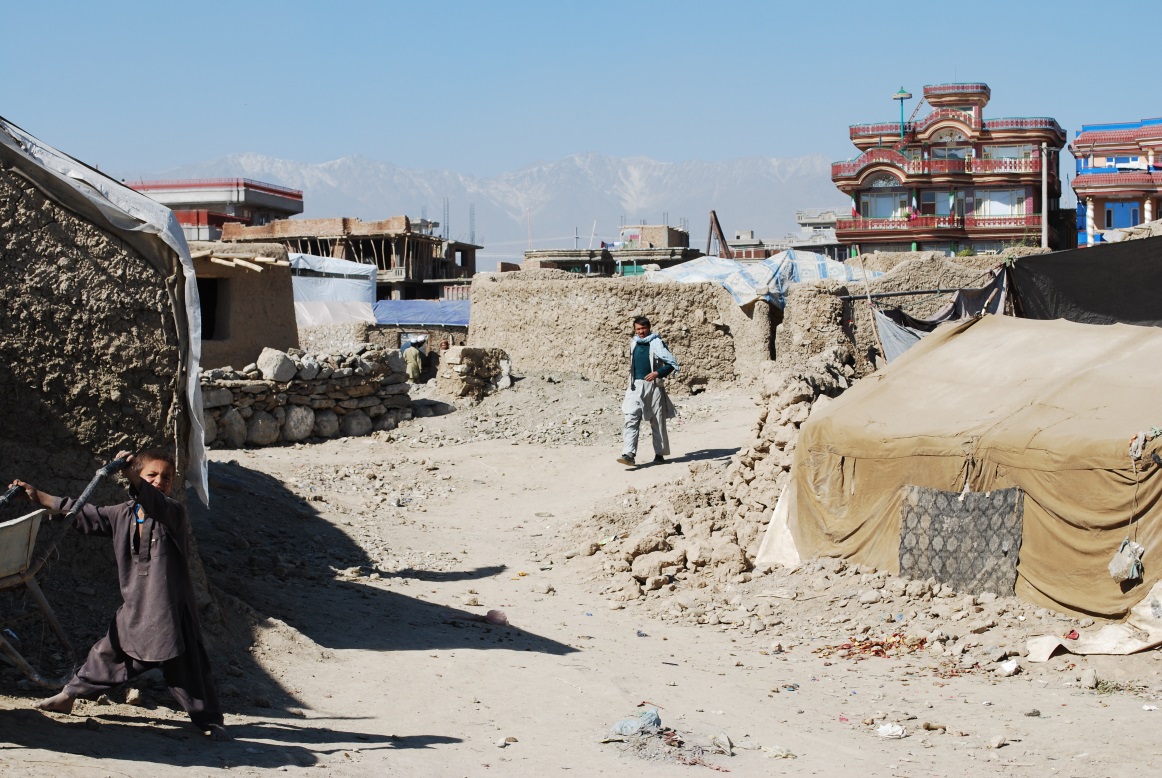People in in-between space: How forced immobility is dealt with in Kabul (Crossroads Asia)
Status
closed
Topics
- Migration and Forced Displacement

BICC has been a member of the Crossroads Asia research network since the beginning of 2015. This network of seven German universities and research institutes was set up in 2011 under the Area Studies Initiative of Germany's Federal Ministry of Education and Research (BMBF). The network is rethinking the conventional Area Studies approach and this subject's relationship to "systematic" disciplines.
BICC points out in its concept paper that "migration is not an exceptional course of action but a social constant of life." This is the starting point for the research focus of Crossroads Asia. The research looks at the mobility (or mobilities) of people, commodities, ideas and capital, exploring the question of the conditions of mobility. The everyday practices of people living, for example, in the border regions between Pakistan, Afghanistan and Iran and the relative openness of those borders, but also the traditionally fluid sociocultural demarcations across the region encompassing today's Central Asia and northern Afghanistan, demonstrate a dynamic that transcends political borders and social boundaries. The research highlights the meaning and fluidity not only of geographical but also of social and cognitive boundaries and demarcations. This study is driven above all by the question of how boundaries are negotiated, take shape and can then recede into the background, and how these processes influence human behaviour including social conflicts and their management. This "crossroads perspective" also enables us to reconsider Area Studies as a subject and re-think its premises. To this end, BICC is collaborating intensively on a book project aimed at producing a disciplinary synthesis within the Crossroads Asia Network and a fresh perspective on Area Studies.
In a sub-project on "People in in-between space: How forced immobility is dealt with in Kabul", BICC is exploring the interdependencies of social inequality and mobilisation dynamics in the urban space. One aspect is that the "urban poor" are denied regular access to key resources. In part, this explains the structural social immobility of large sections of the population. Specifically, the project considers two groups in Afghanistan, the Jogi and the Kuchi, who are traditionally highly mobile but now form a significant proportion of Kabul's population living in irregular and temporary housing. The enquiry is concerned primarily with the self-perceptions of both groups rather than starting from cultural or social attributes accorded by others. BICC wants to establish how the Kuchi and Jogi situate themselves through their own ideas and actions. So the main focus of the research is the consequence of spatial localisation (situatedness) and the underlying processes (situating).
The Jogi and Kuchi are reliant on their environment and their social networks: in the camp itself, in the wider city, where they earn a living, in protective arrangements, i.e. the search for security and safety, including the need to stay in a particular camp. This raises the question of how the interactions of the Jogi and Kuchi with their environment - with the local population (i.e., inhabitants of the neighborhood), with far away responsible authorities and with state regulations – mutually influence those involved and their relevance structures (as mobile/immobile individuals, as public officials or institutions, the refugee regime, the city). The focus of the research will not be on the exclusion of the Jogi and Kuchi camp inhabitants (from an exclusion perspective), but instead on the practices of their inclusion into the existing frames of reference, for example as urban citizens, Kabulis, returnees or (internally) displaced individuals, and therefore also as target groups from the point of view of Afghan/governmental and non-governmental assistance programs.
Project Leader
Project Team
- Helena Cermeño
- Professor Dr Conrad Schetter
Funder
- Federal Ministry of Education and Research (BMBF)
Duration of project
since 2015


